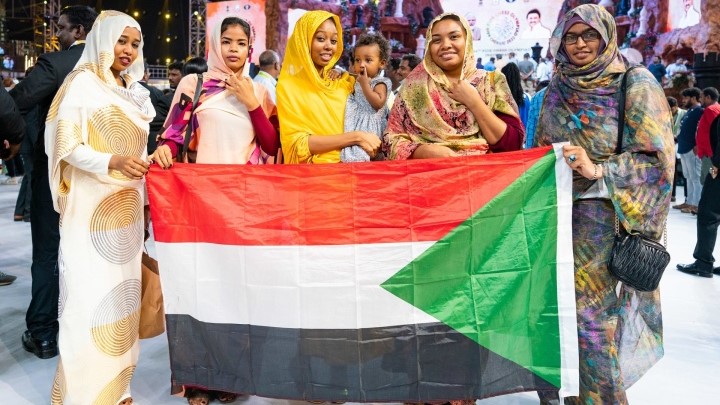Empowering queens of the chessboard: National Female Team Development Seminar

The National Female Team Development Online Seminar was held online on November 26, 2023. This initiative is a part of the FIDE Commission for Women’s Chess project to help countries who have never sent a female team to an Olympiad field a team for the 2024 Chess Olympiad. Over 20 representatives from federations across the globe attended the seminar via Zoom. The project is headed by Tris-Ann Richards (St. Lucia), Councillor in FIDE Commission for Women’s Chess, and Anastasia Sorokina, Chair of the FIDE Commission for Women’s Chess, along with team members Yilmas Kartal, Paris Klerides, Akua Kosife Esse, Monalisha Khamboo and Herborg Hansen. Anastasia Sorokina stressed the significance of this project and pledged WOM support for the amazing initiative. “Despite the age or occupation, we will always work hard to provide the best possible opportunities and community for women,” she said. The initial stage of the initiative started in September by corresponding with the identified federations. It turned out the main reasons for not sending a female team to a Chess Olympiad were the need for more female players, adequate training and sufficient financing. As a result, the seminar sought to address these issues and provide solutions, opportunities and the necessary resources for the federations to solve the problems. The seminar agenda included discussing strategies for securing funding for female chess teams, identifying potential sponsors and partners, funding models and grant opportunities, as well as strategies for attracting female chess talent and case studies of successful recruitment initiatives. “FIDE aims to further and continuously increase women’s representation in management, projects, and professional sports events. One of the priorities is to support those federations where female chess is underrepresented or even non-existent but where leadership works hard to encourage female athletes. Having a female team from every country that takes part in a Chess Olympiad is an ambitious goal that we aim to reach in partnership with national federations,” said Dana Reizniece-Ozola, Deputy Chair of the management board, in her presentation at the seminar. The presentations were well received, and some federations confirmed that they are ready to work along with WOM to take their first-ever female team to the 2024 Chess Olympiad. The next stage of the project is to provide training, Olympiad preparation and support for the federations that join the initiative. The Women’s Chess Olympiad is an event held by FIDE since 1957 (every two years since 1972). In 1976, the Women’s Chess Olympiad was incorporated into the Chess Olympiad, with women’s and open tournaments running simultaneously ever since. A record-breaking 162 teams, representing 160 nations (799 players), participated in the women’s competition at the 44th Chess Olympiad in Chennai, India.
FIDE Director for Chess Development visits Eswatini

Former world-champion challenger and FIDE Director for Chess Development Nigel Short’s recent trip to the Kingdom of Eswatini (formerly Swaziland) has infused fresh momentum into the prospects of chess in this part of Africa. As a part of his African tour, Nigel Short visited the Kingdom of Eswatini from November 16 to November 20. In his capacity as FIDE Director for Chess Development, Short met government and chess officials to discuss how to better promote the game in the Kingdom. Upon arriving, Short attended a reception at the British High Commission, celebrating the birthday of King Charles III, where he met with the prime minister of Eswatini Russel Mmemo Dlamini, state officials and diplomats. Later that evening, he appeared on national television for a prime-time interview where he spoke about the game and the future of chess. On the second day of the visit, Short met with senior government sports officials. The discussion focused on the implementation of chess in education programs. It was agreed that the government would introduce a pilot program in 20 schools, mainly in rural areas, where chess will be taught as of next year as a part of a Chess in Schools initiative which FIDE has been promoting across the globe. In meetings with the officials of the Eswatini Chess Federation, Short heard about the challenges facing the chess community in the kingdom and discussed how FIDE can help promote the game. During his stay, Short also visited local chess clubs, played a simul, and gave a masterclass on chess at the Trojan Horse Club in Manzini. Nigel Short also met with the Chief Executive Officer of the Eswatini Sports & Recreational Council (ESRC). The FIDE Director for Chess Development finished his visit with a trip to the Matsapha maximum security prison, where the ECF has an ongoing pilot program, where he attended a tournament for inmates. “I believe that if more resources are invested in the country’s chess development, it could pave the way for greater success and competitiveness. I believe that with the right support and infrastructure, Eswatini could produce some of the best chess players in the region,” said Short in a brief media discussion with the local media. Eswatini Chess Federation (ECF) Secretary General Qiniso Matsebula said that as a federation, they are thrilled to welcome the renowned grandmaster from the UK. Short provided insightful knowledge and advice to chess enthusiasts of the country. “We are honoured to have Grandmaster Nigel Short joining us. His expertise and experience in the world of chess will undoubtedly provide valuable inspiration and knowledge to us,” he said.

